-
James Kronstad
James Kronstad is a professor in the Michael Smith Laboratories and the Dept. of Microbiology & Immunology at the University of British Columbia. He was recruited to UBC by the Nobel laureate Dr. Michael Smith in 1989, after completing postdoctoral positions at ZymoGenetics, Inc. (Seattle, WA), and at the University of Wisconsin, Madison. He also served as the Director of the Michael Smith Laboratories from 2008 to 2017. His current research efforts focus on understanding mechanisms of pathogenesis in fungi that threaten crop production and in fungi such as Cryptococcus neoformans that infect immunocompromised people. A recent study published in Science revealed that exposure of the plant pathogen Ustilago maydis to combinations of carbon sources in culture triggers the expression of phenotypes normally observed only during biotrophic development in host plants. He is a Burroughs Wellcome Fund Scholar in Molecular Pathogenic Mycology, and a fellow of AAM, AAAS and the CIFAR program: Fungal Kingdom, Threats & Opportunities. https://kronstadlab.msl.ubc.ca
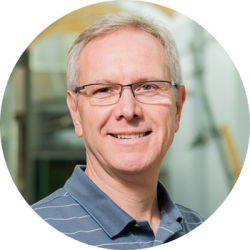
-
Yolanda Wiersma
Yolanda Wiersma (she/her) is a Professor in the department of Biology at Memorial University, St. John’s Newfoundland and Labrador, Canada. She is a landscape ecologist whose primary research focuses on boreal forest ecosystems. Current projects examine landscape pattern across scales, ecological stoichiometry, landscape impacts on wildlife and the use of lichens as a model system for landscape ecology. She is especially interested in research with an applied focus that can help inform conservation and management of forests, wildlife and protected areas. As an interdisciplinary scholar, she has collaborated with lichenologists, marine biologists, aquatic ecologists, geographers, historians, and information systems scientists and authored or co-authored over 80 papers related to wildlife, forestry, citizen science, and landscape ecology. Her recent book, “Experimental Landscape Ecology”, published with Springer, came out in 2022.
Website: www.nllandscapeecology.com
Link to a recent mini-documentary about Newfoundland lichen: https://bit.ly/3HptBPe
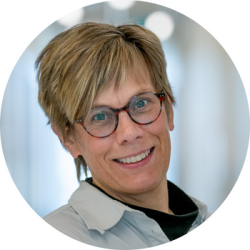
-
Keith Seifert
Keith Seifert worked as a research scientist for Agriculture & Agri-Food Canada in Ottawa from 1990-2019, specializing in the identification and classification of microscopic fungi producing toxins in crops and foods. He was the President of the International Mycological Association from 2014-2018, an Executive Editor of Mycologia from 2015-2018, and the Chair of the International Commission on the Taxonomy of Fungi from 2000-2014. He welcomed students and scientists from five continents to his laboratory. His academic publications include >250 scientific papers and six books. He retired from research in 2019 and is now an adjunct professor at Carleton University in Ottawa. As a speaker and a writer, Keith combines humour and philosophy to explore the interactions between science, the humanities, history and society. His book “The Hidden Kingdom of Fungi: Exploring the Microscopic World in our Forests, Home, and Bodies” was published by Greystone Books in 2022, and explores the roles that fungi play in modern human society.
https://greystonebooks.com/products/the-hidden-kingdom-of-fungi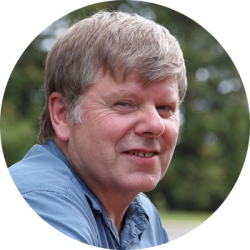
-
Romina Gazis
Romina Gazis is an Assistant Professor in the Department of Plant Pathology at the Tropical Research and Education Center (TREC), University of Florida. Her long-term research goal is to understand the biology behind different plant diseases affecting local industries and natural landscapes and use this knowledge to develop efficient and long-term disease management strategies. She has a 60% extension and 40% research appointment and is the primary research plant pathologist for tropical and subtropical fruit and ornamental crops in south Florida and the Director of the Plant Diagnostic Clinic at UF-TREC. Her research and extension work are oriented towards the needs of stakeholders; more specifically, the development of a statewide research and extension program which manages diseases affecting the commercial production of local crops. This program emphasizes education and dissemination of science-based information about tropical crop production, disease and pest management, and best practices for pesticide use. Its development and implementation, guided by the needs of farmers, allied industry representatives and county extension agents, occurs in the following main areas: (1) improving disease management and therefore increasing the sustainability of tropical and subtropical fruit and ornamental crop production and (2) developing a statewide educational program to improve disease management of tropical and subtropical fruit and ornamental crops.
@ClinicPlant
https://scholar.google.com/citations?user=f-Gdt50AAAAJ&hl=en
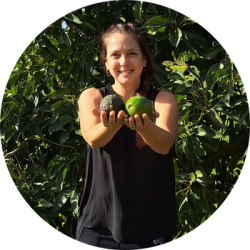
-
Christian Landry
Dr. Christian Landry is a Professor in the Département de biologie and Département de biochimie, microbiologie et bio-informatique at Université Laval. He received his BSc and MSc from Université Laval and his PhD from Harvard University. He was trained as a postdoctoral fellow at Université de Montréal. He currently holds the Canada Research Chair in Cellular Systems and Synthetic Biology and is the leader of the NSERC CREATE training program on the evolution of fungal pathogens, EvoFunPath. Dr Landry’s research goal is the understand how complex cellular systems evolve using natural diversity and diversity evolved or engineered in the laboratory.
https://landrylab.ibis.ulaval.ca/
http://evofunpath.ibis.ulaval.ca/
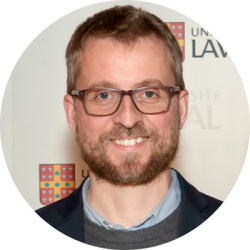
-
Susana C. Gonçalves
Susana is a researcher at the Centre for Functional Ecology of the University of Coimbra, Portugal, where she founded MyCoLAB. The research in the lab focuses on the diversity and ecology of fungi, their uses and conservation, including in applied contexts. Passionate about the human dimensions of fungal conservation and a community science enthusiast, she also keeps an active outreach program, celebrating the fungi to boost conservation. Susana is the chair of the European Council for the Conservation of Fungi (ECCF) and a member of the IUCN SSC Fungal Conservation Committee and IUCN SSC Mushroom, bracket, and puffball Specialist Group. If not in the office or the lab, you´ll probably find her looking for mushrooms somewhere around town.
Lab IG: @cfe_mycolab
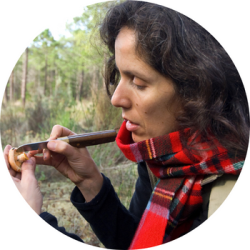
-
Serita Frey
Serita Frey is a microbial ecologist with over 30 years of experience studying microbes in the environment. She received her Ph.D. in Ecology from Colorado State University and is currently a professor in the Department of Natural Resources and the Environment at the University of New Hampshire where she where she is Co-Director of the Center for Soil Biogeochemistry and Microbial Ecology (SoilBioME). Her research examines how environmental change is altering the structure and function of forest ecosystems, with an emphasis on soil microbial communities and nutrient cycling processes. She is specifically interested in how anthropogenic stressors (e.g., climate change, nitrogen deposition, invasive species) affect the composition and diversity of soil microbial communities and microbial-mediated carbon and nitrogen cycles. Her research group works at the interface between ecosystem science, microbial ecology and global change biology, combining microbiological and -omics tools with stable isotope analysis and a variety of soil physical and chemical approaches to examine structure-function linkages. Her research team maintains five long-term global change experiments at the Harvard Forest Long-term Ecological Research (LTER) site. She works with modelers to link across scales from genomes to the globe by incorporating microbial genomic, physiological, community, and ecosystem-scale processes into Earth system models. Dr. Frey was recently named a Fellow of the American Association for the Advancement of Science and the Ecological Society of America. She served as chair of the Science, Technology, and Education Advisory Committee (STEAC) for the National Ecological Observatory Network (NEON; 2016-2018). Awards include the Pettingill Endowed Lectureship in Natural History (University of Michigan Biological Station), the Distinguished Ecologist Alumna (Colorado State University), Associate Professor of the Year (UNH), a Bullard Fellowship (Harvard University), and a National Science Foundation Early Career Development Award. For more information: http://unh.edu/freylab/
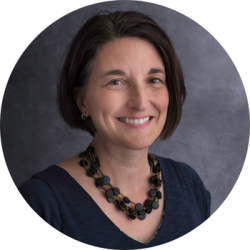
-
Melanie Jones
Melanie Jones is a professor in Biology Department at the University of British Columbia’s Okanagan campus, and a member of the Okanagan Institute for Biodiversity, Resilience and Ecosystem Services (BRAES). She has been studying ectomycorrhizal plants and fungi for more than 40 years, and was the first elected President of the International Mycorrhiza Society. She is especially interested in the makeup and physiology of ectomycorrhizal fungal communities following natural and anthropogenic disturbances. Current projects investigate the recovery of ectomycorrhizal and ericoid mycorrhizal fungal communities 26 years after clearcut logging in a sub-alpine forest, with an attempt to understand the composition of the ectomycorrhizal fungal spore community in both the forest and regenerating stand. In addition, recent studies have documented the timing of ectomycorrhizal colonization of naturally regenerating pine seedlings following stand-replacing wildfire and the composition of the soil fungal community in the first 10 months after fires of different severities. Together with Justine Karst and Jason Hoeksema, she recently published a paper in Nature Ecology & Evolution that documented positive citation bias regarding common mycorrhizal networks and thoroughly evaluated the evidence for several of the common public claims about these networks in forests.
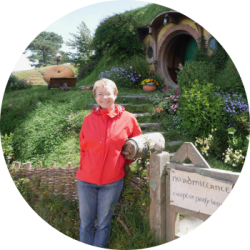
-
Neriman Yilmaz
Neriman got her PhD degree from Utrecht University in 2015. After that, she did a three-year Post-Doctoral study in Canada to work on indoor fungi. Since 2018, she has been a senior Post-Doctoral Fellow at Forestry and Agricultural Biotechnology Institute (FABI) in Pretoria in the Applied Mycology Group. Her research focuses on the taxonomy of the mycotoxigenic genera. She has described more than 50 species in Fusarium, Aspergillus, Penicillium, and Talaromyces. She is part of research projects funded by the Marie Skłodowska-Curie Actions (MSCA-RISE), the Royal Society (FLAIR), and the South African National Research Foundation.
Twitter: https://twitter.com/nerimanyilmaz82
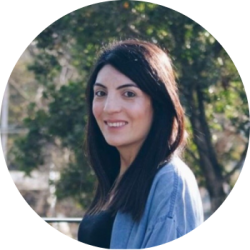

3rd Annual CanFunNet Fungal Biology Conference
June 1-3, 2022